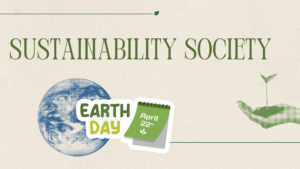Hello to all of you reading this. I suppose this means that you are all actually interested in hearing my thoughts and what I have to say. So thank you for that!
This week’s theme is sustainability, and when I found out this was the topic that I was supposed to engage with, I felt somewhat unprepared in tackling it because I feel I should know more than I do. Even though I last took Geography in Upper Middles, I still understand the notion of how the human race ought to coexist in this world without human activity compromising the needs of future generations. My family and I try to do our bit by always recycling, using our heating and electricity as efficiently as possible, and also refraining from eating beef, not due to any religious reasons but just out of preference. But it would be fair to say we are not perfect, as we have taken a number of international flights, whether it is due to family holidays, visiting family abroad or even school trips, such as most recently to South Africa. But this is definitely something that I know I can improve upon, for example going on holidays instead to areas that don’t require long flights on commercial airlines.
But instead of just talking about myself, I thought it would be quite interesting to share some information I found, in particular, how the Covid-19 pandemic can help firms worldwide build a sustainable future. I like to think that some of the things I will touch on could be implemented within King Edward’s School, Birmingham as well. Prior to the pandemic, many firms were aware that sustainability and the wellbeing of the planet and its people is important, but it is commonly thought to be “someone else’s problem.”
But now, since we are now at a stage of global stasis, it is argued that we now have a chance to reset and remould the world in a more sustainable way. The article I found boiled down how firms can enable themselves to do this, to three main points.
- Define Corporate Purpose: By creating a set of values for the firm to buy into, in which it is made clear that businesses exist to serve society, and not the other way round.
- Empowering Stakeholders: Teach the stakeholders both the moralistic and business benefits of going down the more sustainable route. Increase the capability of the workforce to act sustainably, e.g. through new training and putting in new systems that enable this.
- Collaborate and Partner: The formations of industry collaborations and partnerships will help create systemic changes that are necessary for our planet’s survival.
Overall from my research, the gist of the message is for companies and firms to take ownership, and actively work to better the way they function, to help preserve our planet.
That’s all from me folks.











